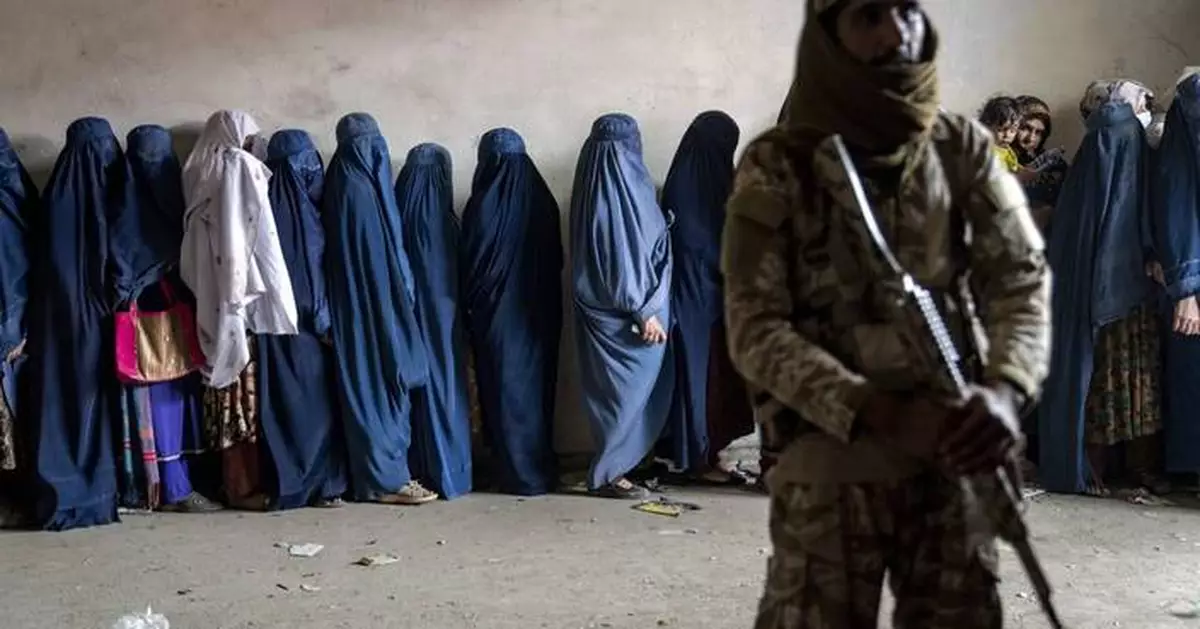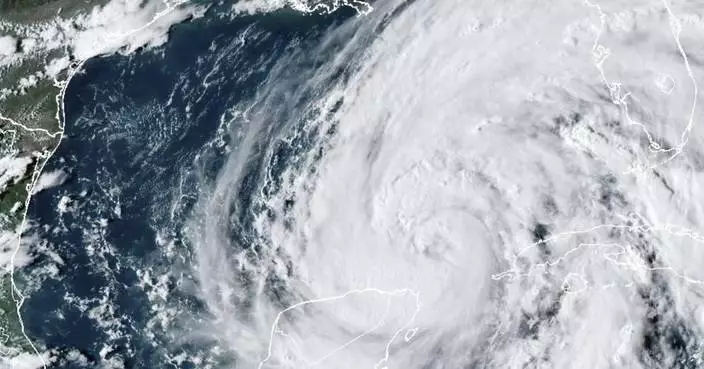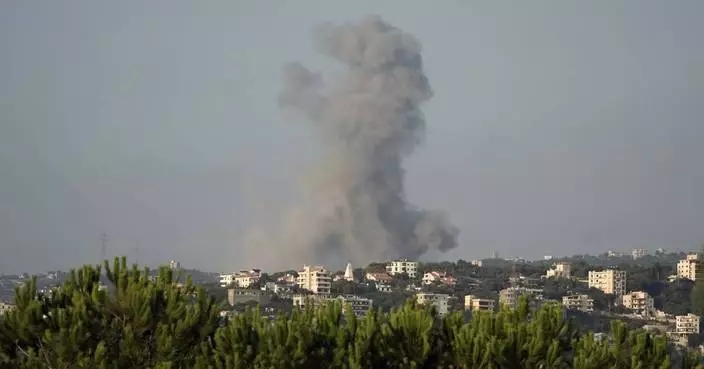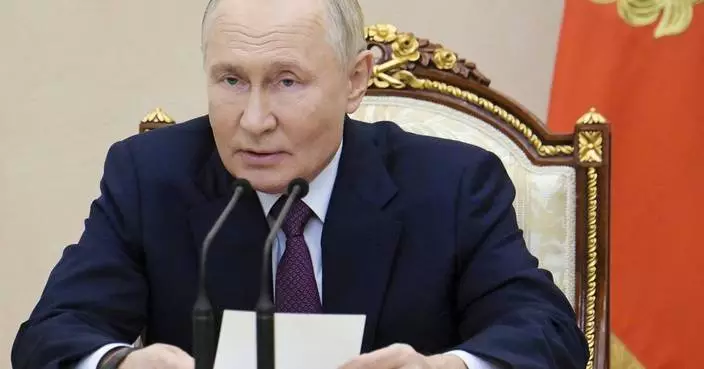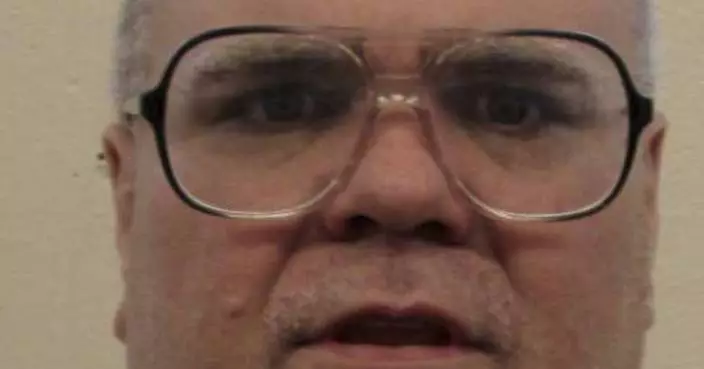KABUL, Afghanistan (AP) — The Taliban said Thursday it was absurd to accuse them of gender discrimination and other human rights violations, as four countries vow to hold Afghanistan’s rulers accountable under international law for their treatment of women and girls.
Australia, Canada, Germany and the Netherlands are set to start legal proceedings against the Taliban for violating a U.N. convention on women, to which Afghanistan is a party.
The countries launched the initiative on Wednesday on the sidelines of the U.N. General Assembly, which is taking place in New York until Monday.
Despite promising more moderate rule after they seized power in 2021, the Taliban have barred women and girls from education beyond sixth grade, many public spaces and most jobs. In August, the Vice and Virtue Ministry issued laws banning women’s bare faces and prohibiting them from raising their voices in public.
More than 20 countries expressed their support Thursday for the proposed legal action against the Taliban.
“We condemn the gross and systematic human rights violations and abuses in Afghanistan, particularly the gender-based discrimination against women and girls," the countries said.
“Afghanistan is responsible under international law for its ongoing gross and systematic violation of numerous obligations under the Convention on the Elimination of All Forms of Discrimination against Women,” they added.
The countries said they did not politically recognize the Taliban as the legitimate leaders of the Afghan population.
“Afghanistan’s failure to fulfill its human rights treaty obligations is a key obstacle to normalization of relations,” they said.
The Taliban’s deputy spokesman Hamdullah Fitrat said human rights were protected in Afghanistan and that nobody faced discrimination.
“Unfortunately, an attempt is being made to spread propaganda against Afghanistan through the mouths of several fugitive (Afghan) women and misrepresent the situation,” he said on social media platform X.
“It is absurd to accuse the Islamic Emirate of Afghanistan of violating human rights and gender discrimination,” he added.
The Taliban reject all criticism of their policies, especially those affecting women and girls, describing it as interference. They maintain that their actions are in line with their interpretation of Islamic law, or Sharia.
Fereshta Abbasi, an Afghanistan researcher at Human Rights Watch, urged other countries to register their support for the four countries’ legal action and for them to involve Afghan women as the process moved forward.
“The announcement by Germany, Canada, Australia and the Netherlands may mark the beginning of a path to justice for the Taliban’s egregious human rights violations against Afghan women and girls,” said Abbasi.
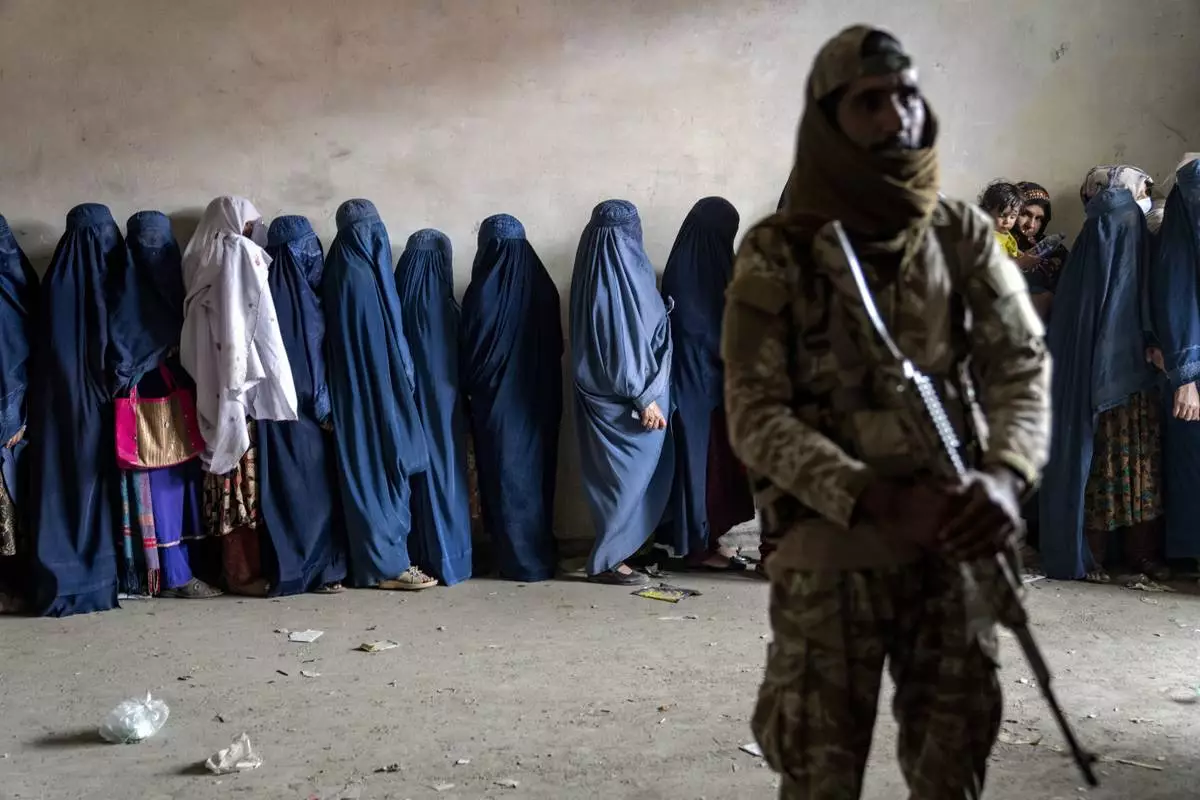
FILE - A Taliban fighter stands guard as women wait to receive food rations distributed by a humanitarian aid group in Kabul, Afghanistan, Tuesday, May 23, 2023. (AP Photo/Ebrahim Noroozi, File)
TEL AVIV, Israel (AP) — The Israeli prime minister appeared to downplay hopes of an imminent truce with Hezbollah on Thursday after the United States and its allies called for an “immediate” 21-day cease-fire to “provide space for diplomacy.”
In a statement released as Prime Minister Benjamin Netanyahu was en route to New York to attend the U.N. General Assembly, his office said there was only a proposal on the table and that he had not yet responded to it. The statement also denied that there had been any directive to ease up on fighting on the northern border with Lebanon.
The comments raised questions about a new international initiative to halt increasingly heavy exchanges of fire that have killed hundreds of people in Lebanon and threatened to trigger an all-out war between Israel and Hezbollah. They came as Israel has threatened to launch a ground invasion into Lebanon to push the militant group away from the border and as an Israeli strike in Lebanon killed 23 people.
The Israeli foreign minister, Israel Katz, had previously said that the country would continue fighting “with all our might until victory and the safe return of the residents of the north to their homes.”
Hezbollah has also not yet responded to the proposal for a pause in fighting, although Lebanon's caretaker Prime Minister Najib Mikati has welcomed it.
The Lebanese militant group has insisted it would only halt its strikes if there is a cease-fire in Gaza, where Israel has been battling Hamas for nearly a year. That appears out of reach despite months of negotiations led by the United States, Egypt and Qatar.
In its statement, Netanyahu's office said that “the fighting in Gaza will also continue until all the objectives of the war have been achieved.” Netanyahu is expected to meet with other world leaders on the sidelines of the U.N. General Assembly.
Israel launched a massive operation in Gaza after a Hamas-led attack into southern Israel on Oct. 7 in which some 1,200 people, mostly civilians, were killed, and some 250 were taken hostage. More than 41,000 Palestinians have been killed in Gaza since then, according to local officials.
Hezbollah began firing rockets into Israel one day after the Oct. 7 attack in support of its Hamas allies, and Hezbollah and Israel have traded fire ever since.
Israeli families of the hostages said they are pushing for a possible cease-fire deal for Lebanon to include provisions for the war in Gaza, especially securing release of the roughly 70 hostages still presumed to be alive and the bodies of some 30 others.
Gil Dickmann, whose cousin Carmel Gat was kidnapped and was one of six Israelis whose bodies were recovered from tunnels in Gaza in August, said the families of the hostages are feeling forgotten as attention shifts to the northern front.
“We know that these things are connected to each other, the northern part and the southern part, they’re all part of the same large situation which we are in from Oct. 7 on, and we’re very worried that if we don’t make the right decisions now, we will miss this amazing opportunity to get the hostages out,” Dickmann said on Tuesday, as hopes for cease-fire deal swelled.
He slammed Netanyahu for missing multiple opportunities to free his cousin and begged him not to miss another chance by agreeing to a truce with both Hezbollah and Hamas that would include provisions for the hostages. Dickmann’s sister-in-law, Yarden Roman-Gat, was released in a weeklong cease-fire deal last November, along with some 100 other hostages.
Israel has carried out days of heavy strikes across Lebanon, targeting what it says are Hezbollah rocket launchers and other military infrastructure. The militants have fired hundreds of rockets into Israel and on Wednesday targeted Tel Aviv for the first time with a longer-range missile that was intercepted.
On Thursday, an Israeli airstrike in Lebanon hit a building housing Syrian workers and their families, killing 23 people, Lebanese officials said. It was one of the deadliest single strikes in the intensified air campaign against Hezbollah.
Lebanon’s National News Agency said the strike occurred near the ancient city of Baalbek in the Bekaa Valley, which runs along the Syrian border. It quoted Ali Kassas, mayor of the village of Younine, as saying that the bodies of 23 Syrian citizens were pulled from under the rubble. He said four Syrians and four Lebanese were wounded.
Hussein Salloum, a local official in Younine, said most of the dead were women and children, and that rescue efforts lasted through the night and into Thursday morning.
“We dug through the rubble with our own hands” until a small bulldozer was brought in, Salloum told The Associated Press by telephone. “We had very limited capabilities.”
The Lebanese Red Cross said it recovered nine bodies, while others were recovered by Hezbollah’s paramedic service and the Lebanese Civil Defense.
Lebanon, with a population of around 6 million, hosts nearly 780,000 registered Syrian refugees and hundreds of thousands who are unregistered — the world’s highest refugee population per capita.
Israel struck 75 sites overnight across southern and eastern Lebanon, the military said. At least 45 projectiles were fired from Lebanon early Thursday, all of which were intercepted or fell in open areas, it said.
Israeli strikes since Monday have killed more than 630 people in Lebanon, according to local health authorities, who say around a quarter were women and children. Several people have been wounded by shrapnel in Israel.
The fighting has killed dozens of people in Israel and driven tens of thousands from their homes on both sides of the border.
Israel has vowed to do whatever is necessary to allow its citizens to return, and it has moved thousands of troops to the northern border in preparation for a possible ground operation.
Mroue reported from Beirut.
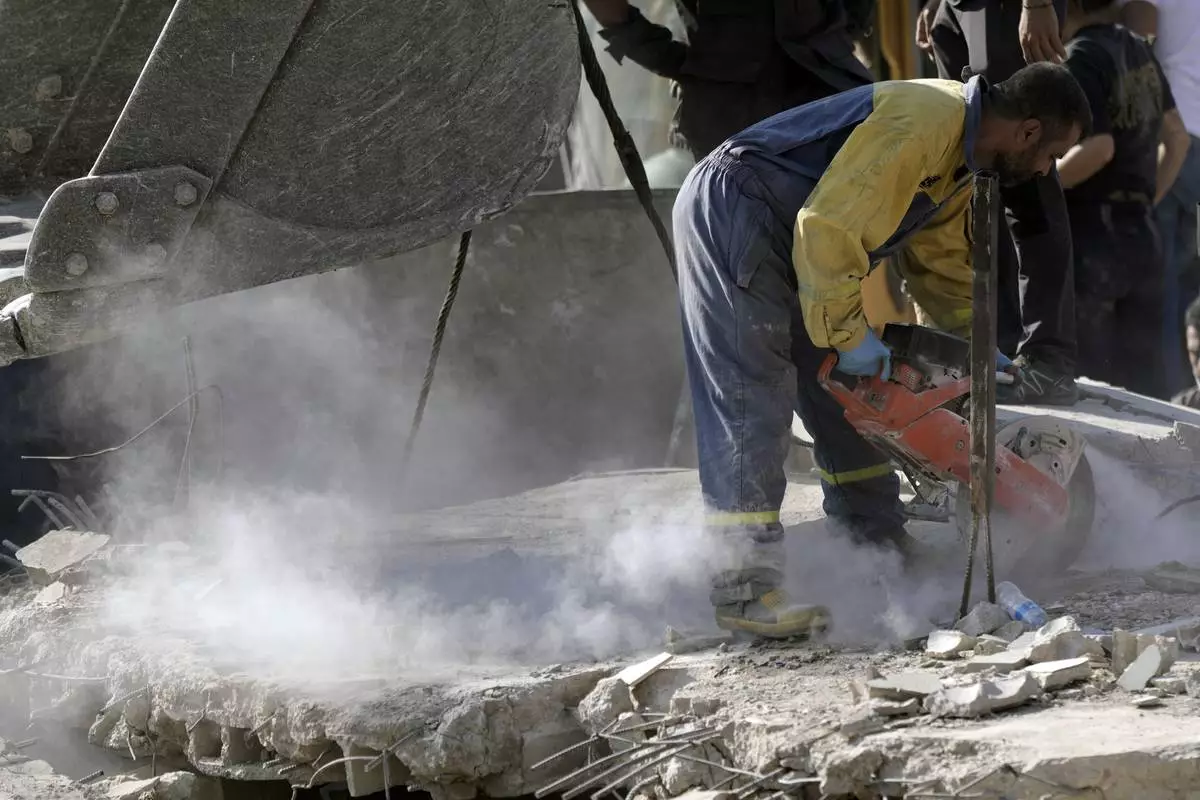
An emergency worker cuts concrete blocks as he searches for survivors at the scene of an Israeli airstrike in the town of Maisara, north of Beirut, Wednesday, Sept. 25, 2024. (AP Photo/Bilal Hussein)



